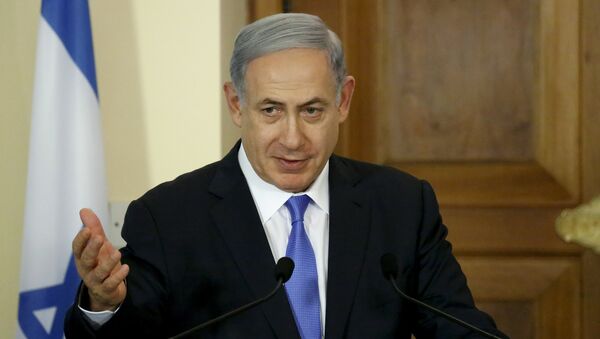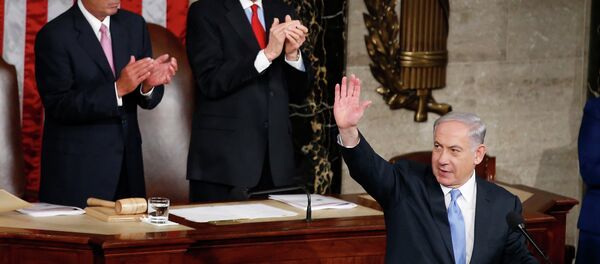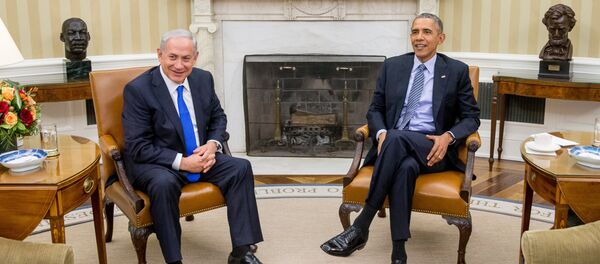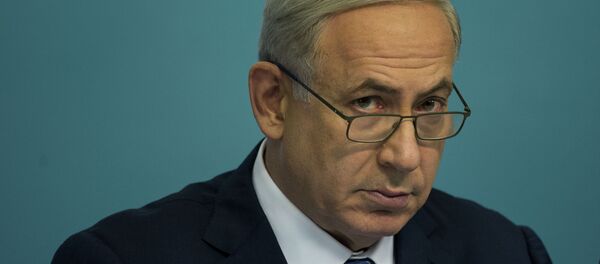In the weeks leading up to the Iran nuclear deal, one of the accord’s leading critics was the administration of Israeli Prime Minister Benjamin Netanyahu. In an attempt to derail the agreement, Bibi delivered a controversial speech in the US Capitol.
The invitation for that visit came from Republican leadership and not, as is customary, the White House.
Heeding criticism that he was taking advantage of America’s partisan political divide, Netanyahu thought he would do things a little differently during this week’s visit to Washington. Instead of one speech, he plans to deliver two, one to be hosted by a conservative think tank, the other by a liberal counterweight.
For the conservative end, the Netanyahu administration reached out to the American Enterprise Institute. For the liberals, the Center for American Progress (CAP) agreed to host.
But CAP is already facing strong pushback. A letter circulated by the Jewish Voice for Peace and the Arab American Institute is calling for the center to cancel the prime minister’s address – and it has already gained signatures from 18 organization and 117 individuals.
"Having courted Republicans as his natural allies, he has, on three occasions, addressed joint sessions of Congress, using all of them to turn ‘peace negotiations’ into a blank check for ever more expansionist policies," the open letter reads.
"Netanyahu knows that he has created a deep partisan divide in the US over Israeli policies and is attempting to repackage his increasingly far-right agenda as bi-partisan consensus."
In response, CAP has defended its decision as being in line with its policy of welcoming speakers with differing viewpoints.
"There is a progressive value to have an open discourse on important topics of the day," CAP President Neera Tanden said, according to the Washington Post.
She stressed that her organization is also critical of Netanyahu’s tendency to talk only to American conservatives. She also said that the prime minister’s speech will also include a question-and-answer session in which the audience can press Netanyahu on some of his more controversial policy decisions.
"It was not an easy decision but at the end of the day we are a think tank," Tanden said. "He’s the leader of a country with which the US has a very strong relationship. There are issues we care about in Israel and the region. So we agreed to hold a forum."
A separate petition has also been circulated by the Jewish Voice for Peace in light of Netanyahu’s visit. Written on behalf of the US Campaign to End the Israeli Occupation, that petition has gained over 26,000 signatures and was delivered to the Center for American Progress.
With the speech scheduled for Tuesday afternoon, it seems unlikely that CAP will cancel the event.
On Monday, Netanyahu met with President Barack Obama to discuss the renewal of a soon-to-expire military assistance package.
"A lot of our time will be spent on a memorandum of understanding that we can potentially negotiate," Obama told reporters on Monday heading into the bilateral talks. "It will be expiring in a couple of years, but we want to get a head start on that to make sure that both the United States and Israel can plan effectively for our defense needs going forward."
The two leaders were also expected to discuss the Israeli-Palestine peace process, though the White House indicated that such an agreement is unlikely before the end of Oboma’s presidential term.





